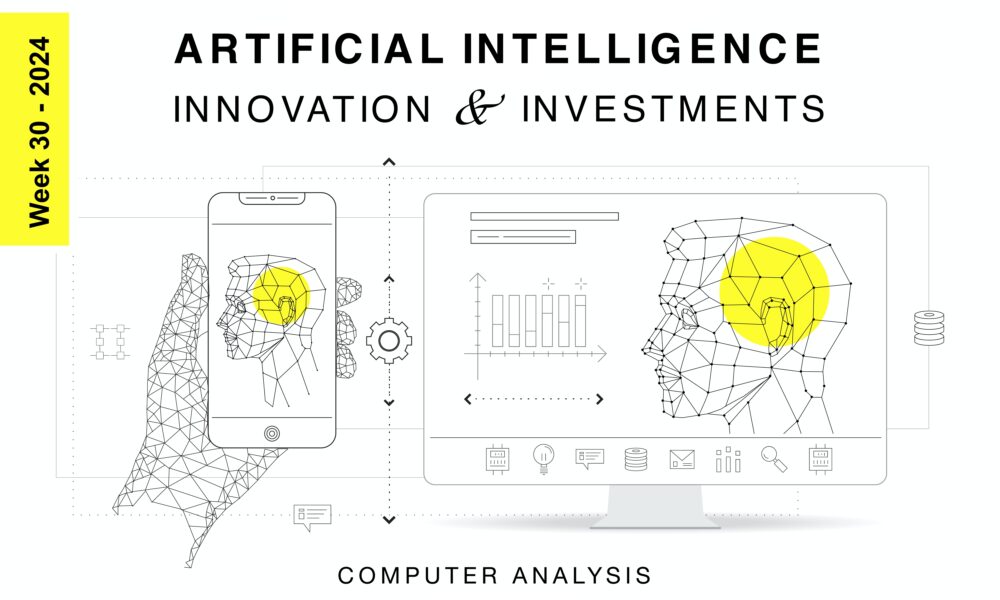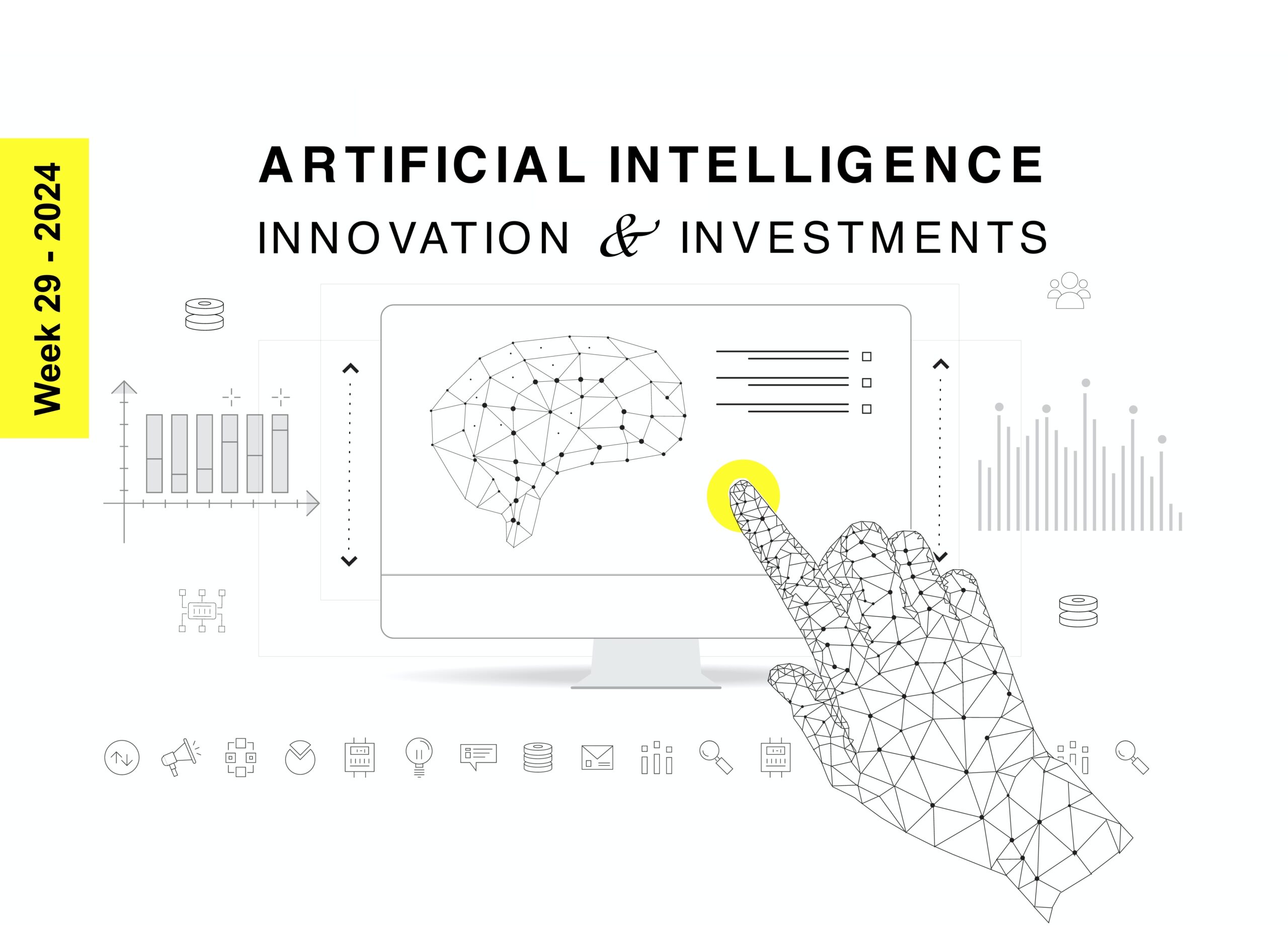AI Week 30 2024 Summary
Intel, in collaboration with the US Olympic and Paralympic Committee, is leveraging artificial intelligence (AI) to enhance the broadcast and operations of the 2024 Paris Olympics, while Alphabet has achieved a milestone by generating $10 billion in revenue from its AI initiatives. Meanwhile, the federal government is bolstering its commitment to responsible and ethical AI practices with the recent buy-in from Apple.
AI and the Olympics
Intel, in collaboration with NBCUniversal and the US Olympic and Paralympic Committee, announced the use of AI to enhance the broadcast and operations of the 2024 Paris Olympics. This initiative, part of the International Olympics Committee (IOC) AI Agenda, aims to provide more comprehensive explanations of competitions to viewers, more accurate measurements, and enhanced experiences.
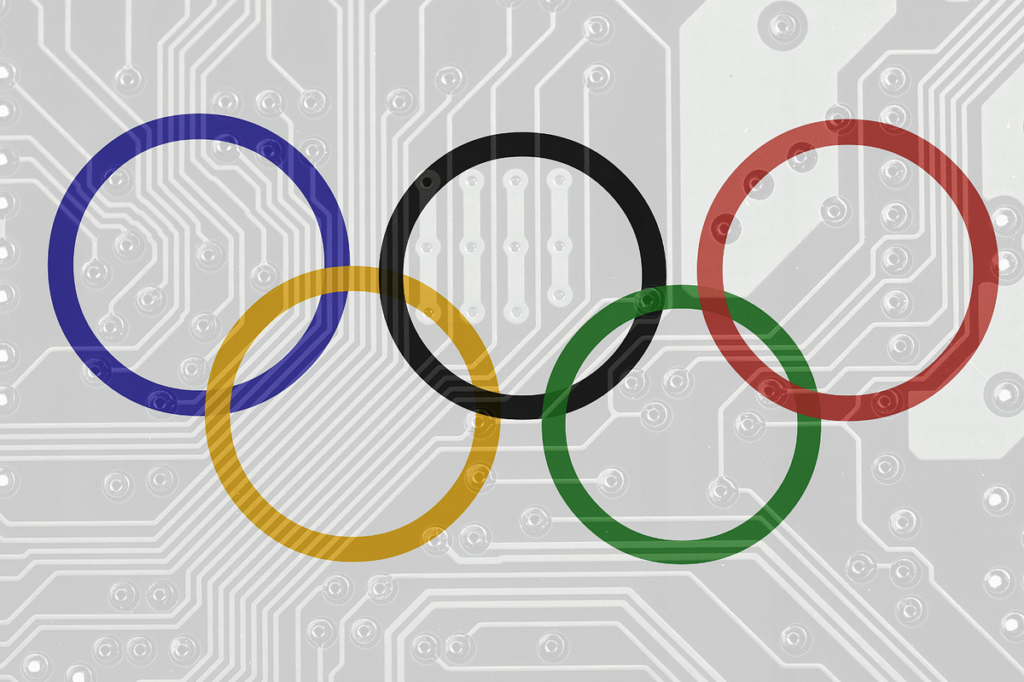
The IOC will use AI at the Olympic Games Paris 2024, in different areas. A very important one is safeguarding from cyber abuse, since we expect about half a billion social media posts during these Games. AI will also be used to create highlights videos in multiple formats and languages during these Games. We are also using AI to make the Olympic Games more sustainable, through a very sophisticated first-ever data capture and energy management system. AI is also opening up new ways for talent identification, and this project will be launched by us globally in 2025 to live up to the commitment we made that AI in sport must be accessible to everybody. – Thomas Bach, IOC President
Here are some key activities involving AI:
Athlete Performance and Training
3D Athlete Tracking (3DAT): Developed by Intel, this technology uses AI to track 21 points on an athlete’s body, providing detailed biomechanical insights to help coaches improve performance and training regimes.
This summer, Intel will accelerate its mission of bringing ‘AI Everywhere’ using Intel solutions at Paris 2024, showcasing the powerful potential of technology and AI to create immersive and interactive experiences at the Olympic and Paralympic Games Paris 2024 for millions around the world. – Sarah Vickers, leader of Intel’s Olympic and Paralympic Games Office.

Refereeing and Judging
AI-Powered Decision Systems: AI is being used to assist refereeing in sports. For example, semi-automated offside technology, previously seen in the FIFA World Cup, may appear in Olympic soccer.
Gymnastics Judging: The AI Agenda set out a future-forward list of goals, which include game optimization, talent detection, and the “reduction of human bias.” For the first time, AI tools are used to support accurate judging. Gymnast movements, for example, will be compared to rulebooks, enhancing transparency and fairness.
Enhanced Viewer Experiences
Personalized Highlights: AI will allow viewers to create personalized highlights through platforms like Intel’s Geti computer-vision AI, making it easier for fans to focus on specific athletes or events.
Interactive On-Site Experiences: AI-powered fan activations will offer interactive experiences, letting fans feel like Olympic athletes through activities like AI-driven drills and simulations. IOC executives are committed to create an Olympic experience like never before with AI, as part of the organization’s commitment to building a better world through sport.
Broadcasting Enhancements
8K Live streaming: For the first time, Intel will use its processors to provide end-to-end 8K live streaming of the games, promising higher-quality broadcast experiences.
Real-Time Data Analysis: AI will help broadcasters deliver statistics and visual aids such as acceleration and speed data, enriching the viewing experience.
Event Operations and Efficiency:
Logistics and Efficiency: AI will optimize transportation, workforce training, logistics, and ticket sales, ensuring smooth event operations.
Athlete Safeguarding: AI will be employed to monitor social media for abusive comments to protect athletes and officials, automatically erasing harmful posts
These AI-driven innovations aim to enrich the Olympics experience for athletes, officials, and viewers, showcasing the technology’s growing impact on the world of sports.
Alphabet’s AI-Focused Business Hits a $10 Billion Milestone
Alphabet, the parent company of Google, has announced that its AI-focused business is driving significant growth and has become a major contributor to the company’s overall success. The company’s cloud business, which includes its AI offerings, has reached a significant milestone, with quarterly revenue exceeding $10 billion for the first time. This impressive achievement is a testament to the company’s strategic focus on AI and its ability to deliver cutting-edge solutions to its customers, and will likely trigger the continued increase in AI investments cited in week 29.
The growth in Alphabet’s AI business is being driven by two key segments: AI infrastructure and generative AI solutions. The company’s investments in building a robust and scalable AI infrastructure have paid off, enabling it to offer powerful tools and platforms to developers and businesses alike. This infrastructure includes custom chips, high-performance computing systems, and advanced algorithms that enable faster and more efficient AI processing.
In addition to its infrastructure offerings, Alphabet is also seeing strong demand for its generative AI solutions. These solutions leverage the company’s state-of-the-art language models, such as Gemini, to enable a wide range of applications, from chatbots and virtual assistants to content creation and language translation. The company’s generative AI solutions are being used by a growing number of customers across various industries, including healthcare, finance, and e-commerce.
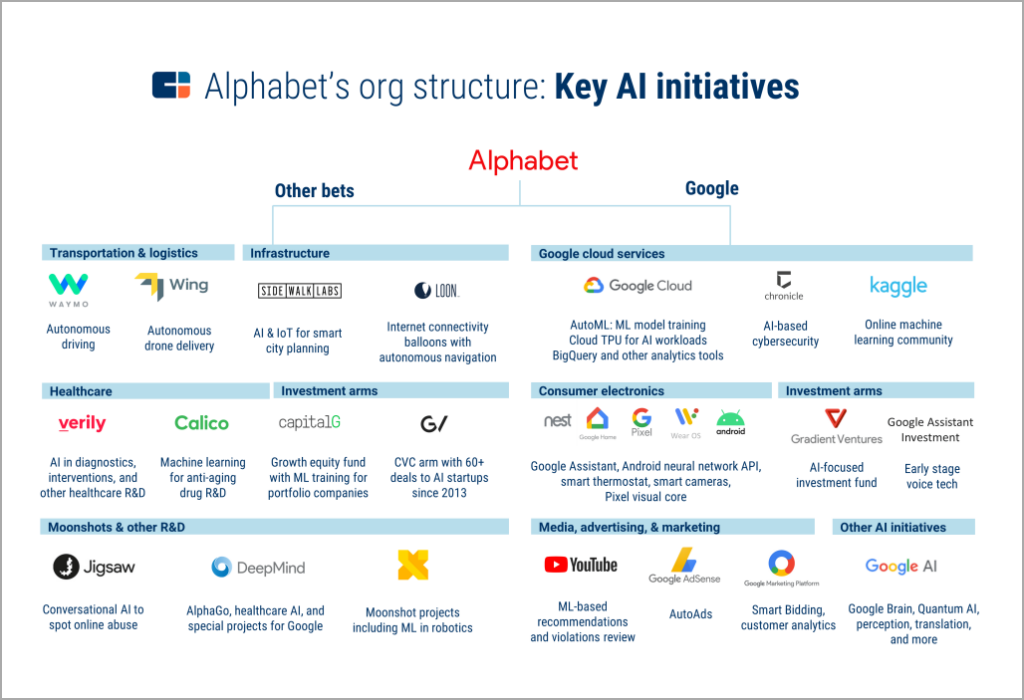
One of the key factors driving the adoption of Alphabet’s AI solutions is the company’s strong developer ecosystem. More than 1.5 million developers are now using Google’s large language model Gemini, which is a testament to the platform’s ease of use and powerful capabilities. This growing developer community is creating a virtuous cycle of innovation, with more developers building on top of Alphabet’s AI tools and platforms, which in turn attracts more customers and drives further growth.
Looking ahead, Alphabet’s AI business is well-positioned for continued growth and success. The company’s investments in AI infrastructure and generative AI solutions, combined with its strong developer ecosystem and growing customer base, provide a solid foundation for future growth. As more businesses recognize the transformative potential of AI, Alphabet is likely to see increasing demand for its offerings, further cementing its position as a leader in the AI industry.
Moreover, Alphabet’s AI business is not just driving growth but also enabling the company to make a positive impact on society. The company’s AI solutions are being used to tackle some of the world’s most pressing challenges, from healthcare and climate change to education and social justice. For example, Alphabet’s AI tools are being used to accelerate drug discovery, improve renewable energy systems, and provide personalized learning experiences to students.
The U.S. Government Gets Major Voluntary Commitments to Responsible AI
The Biden-Harris administration announced new artificial intelligence actions and received an additional major voluntary commitment on AI from Apple, further cementing the voluntary commitments from 15 leading U.S. AI companies, including Meta, OpenAI, IBM, and Adobe, as cornerstones of responsible AI innovation. It’s a White House effort to mobilize government “to ensure that America leads the way in seizing the promise and managing the risks of artificial intelligence,” according to a press release.
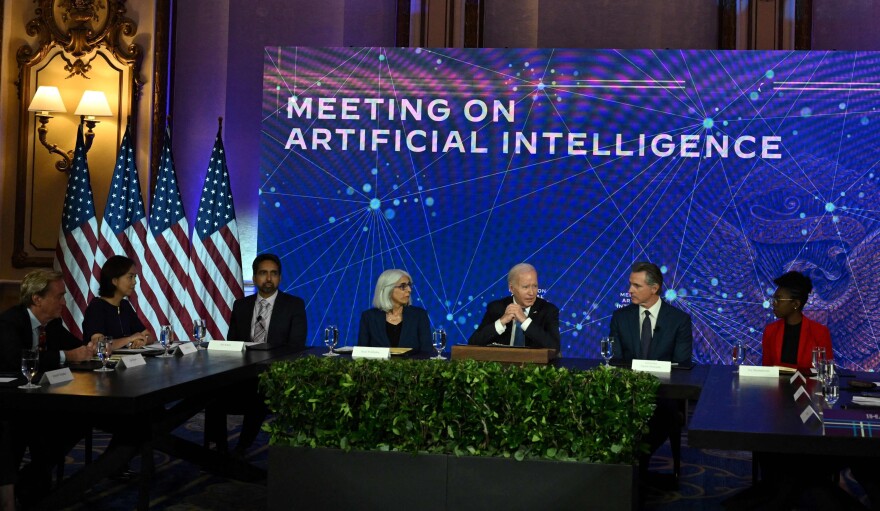
Federal agencies also reported completing all 270-day actions from President Biden’s landmark AI executive order on schedule, following their on-time completion of every other required task to date. Under the executive order and calls to action by Vice President Harris, agencies across the government have taken bold steps to mitigate AI’s safety and security risks, protect privacy, advance equity and civil rights, stand up for consumers and workers, promote innovation and competition, and advance American leadership globally. Actions completed include releasing guidelines for leading AI developers to prevent misuse of dual-use foundation models, publishing frameworks on managing generative AI risks, expanding AI testbeds and evaluation tools, piloting AI to protect government software, and combating AI-generated image-based sexual abuse.
The administration also made progress on bringing AI talent into government through the AI Talent Surge, with over 200 hires to date across agencies for both national security and non-national security missions. Other completed actions focused on advancing responsible AI innovation, such as preparing a report on widely available dual-use foundation models, awarding research teams access to AI resources through the National AI Research Resource pilot, releasing guidance on AI in education and patents, and launching initiatives to promote privacy-enhancing technologies and invest in AI development. To advance U.S. leadership abroad, agencies issued plans for engaging on global AI standards, guidance on managing AI’s human rights risks, launched a UN resolution and expanded support for a declaration on responsible military use of AI.

